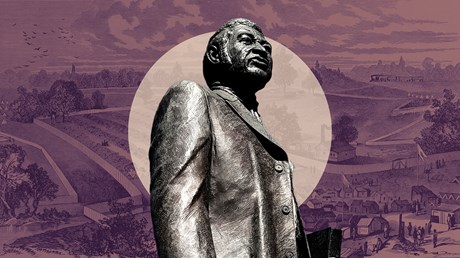The architect of a foiled 19th-century slave revolt justified violence in terms he hoped Americans would understand.

As Christians in America seek to think carefully and faithfully about racial issues in the culture and in their churches, good historical understanding must be a part of that process. Such understanding should include the reality of slavery, not just as a hypothetical institution but as a lived experience of image-bearers of God.
When I teach classes about slavery, I emphasize the existence of several large conspiracies against slavery, plots that give the lie to the myth of happy and contented slaves. The largest uprising, carried out in Virginia, was led by Nat Turner in 1831.
A decade prior, Denmark Vesey, a free African American in Charleston, South Carolina, laid the groundwork for his own slave revolt. This year marks the bicentennial of his eventual execution. Vesey first appears in the historical record as an enslaved teenager in Bermuda, although it’s possible he was born in West Africa, kidnapped, and brought to the Caribbean. A failed sale led the ship’s captain, Joseph Vesey, to bring the young man to Charleston. Vesey developed a trade in carpentry, and in 1799 he won a major lottery, allowing him to purchase his freedom.
Vesey could have continued plying his profession peacefully, but he rankled under the injustice of slavery, a burden he still felt as several of his children remained enslaved. He was also inspired by the American Revolution’s promise of equality, rooted in a divine creation of all. So he began plotting an uprising, enacted mostly by enslaved men, to set fire to Charleston, kill as many whites as resisted, and escape to Haiti.
When recruitment reached too far, however, the conspiracy was discovered. Vesey and the other plotters were arrested. After trials, they were executed in ...
from Christianity Today Magazine
Umn ministry


.gif)

.gif)
.gif)
